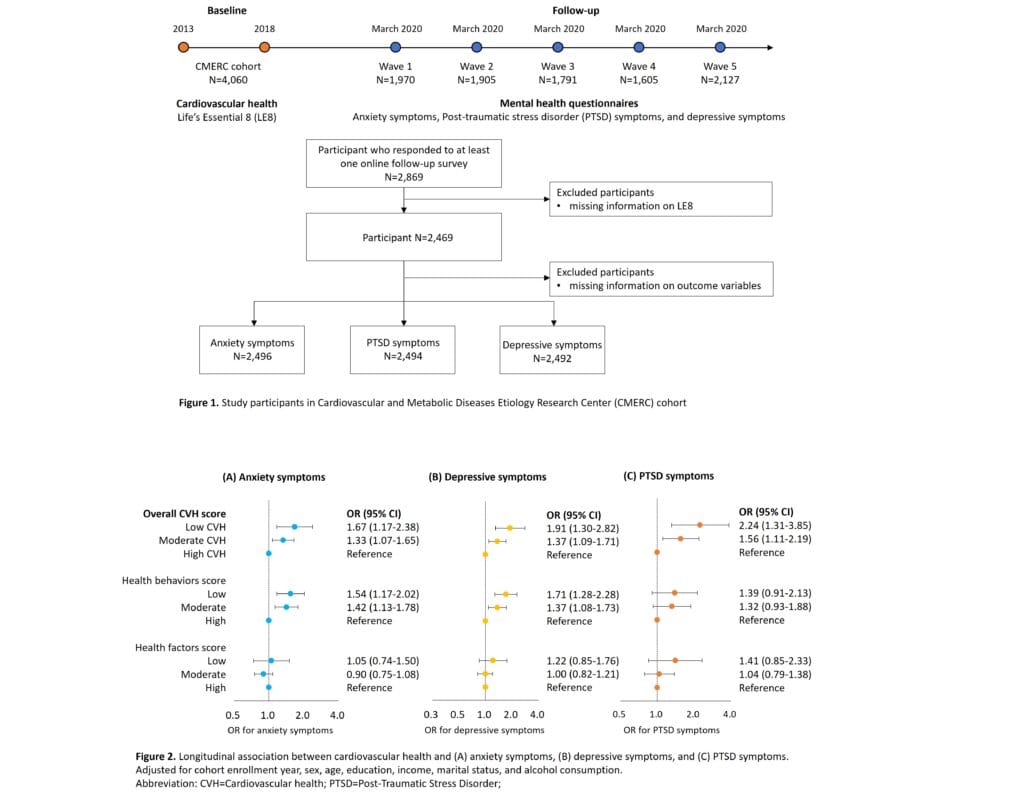Mental Health
Longitudinal Analysis of the Impact of Cardiovascular Health on Subsequent Depressive Symptoms, Anxiety, and Post-Traumatic Stress Disorder Jeong Hyun Ahn* Jeong Hyun Ahn Sun Jae Jung Dongkyu Lee Ji Su Yang
Background: There is limited longitudinal research examining the association between cardiovascular health, as measured by Life’s Essential 8 metrics from the American Heart Association, and mental health outcomes such as anxiety symptoms, depressive symptoms, and post-traumatic stress disorder (PTSD) symptoms.
Methods: This study utilized follow-up data from individuals enrolled in a community-based cohort study in Korea. A total of 2,869 individuals who participated in at least one of the five surveys were included. The CVH was measured at baseline visits in 2013-2018, and divided into health behaviors (diet, physical activity, nicotine exposure, and sleep health) and health factors (body mass index, blood lipids, blood glucose, and blood pressure). CVH is categorized into “low (0–<50, poor CVH)”, “moderate (50–<80, intermediate CVH)”, and “high (80–100, ideal CVH)”. We measured three mental health outcomes: anxiety symptoms, depressive symptoms, and PTSD symptoms at each follow-up. This study evaluated the odds ratio (OR) and 95% confidence intervals (CI) using the generalized estimating equation model, adjusting for sex, age, cohort enrollment year, income, education, marital status, and current drinking status.
Results: Compared to participants with high CVH at baseline, likelihoods for subsequent anxiety symptoms (OR=1.67, 95% CI=1.17–2.38), depressive symptoms (OR=1.91; 95% CI=1.30–2.82), and PTSD symptoms (OR=2.24, 95% CI=1.31–3.85) increased among participants with low CVH. Low health behaviors were associated with increased anxiety symptoms (OR=1.54, 95% CI=1.17–2.02) and depressive symptoms (OR=1.71, 95% CI=1.28–2.28) compared to high health behaviors.
Conclusion: In this prospective study, low CVH at baseline was associated with overall poor mental health including increased anxiety, depressive, and PTSD symptoms. Early management of ideal CVH and healthy behaviors may act as essential intervention for preventing mental health.

